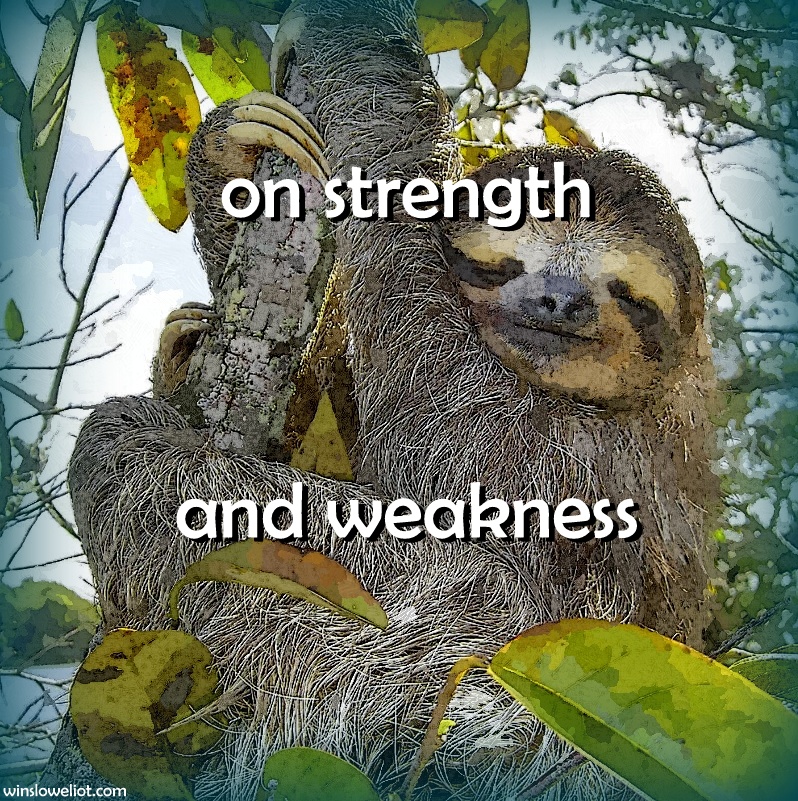
Stillness 9-12:
We are delicate, intricately-connected, lovable, soft little beings floating around a vast, mostly unknown, and very mysterious cosmos. If at times it feels as though it’s all too much to cope with, that’s not surprising. Most of our thoughts about the future are terrifying. Do you sometimes feel small and weak? I do. But I also remember that what we perceive to be our darndest weakness is also our greatest strength.
The word “weak” has its Old English origins in words meaning pliant, soft, tender, yielding, and bending. I want to be all those things, but of course I don’t want to feel weak. So how can we transform those tender areas where we feel most vulnerable into the gift of strength?
Say you have a perceived weakness of a hot temper and blowing a fuse under stress. Should that tendency be rooted out and admonished and told to behave nicely in the future? Or is that tendency a force for good when it’s directed toward injustice or activism?
Or is your weakness judging others instead of accepting who they are with complacent compassion? Lawyers and judges may have garnered shady reputations, but ideally they care about truth and justice more than anything in the world, and they devote their lives to that. You can too, even in the smallest of ways.
What do you think your biggest weakness is? Sometimes I feel I’m not doing enough. I’m slothful. There’s so much I could accomplish if I set my mind to it. But then I look at my life and see such richness, immense busyness, and accomplishment galore. There were times when my life was so full I hardly had time to sleep—and to tell the truth I never want to be that busy again! So my current slothfulness allows me to explore realms I never had time to before — inner realms, inner peace, new hobbies, and a sweet new lightness of being. It turns out I like sloths and I like feeling slothful.
Sloths are beautiful, interesting creatures who can teach us a great deal about stillness. They’re peaceful and easygoing creatures, living at their own pace. They care about others, themselves, their environment and they don’t sleep nearly as much as we’ve been told they do. They just live more relaxed lives and move more slowly than other creatures. When I was a teenager, friends and teachers criticized me for moving slowly. At the end of class, I took my time putting my books away. I rarely ran to the swings but once I was on one, I enjoyed sitting on it. When I took long, dawdling walks through the wooded mossy paths of Ashdown Forest, I’d recite poems and pause to touch a tree or to speak to a woodland creature I’d meet. That was the pleasure in the walk, not the getting there. And sloths often hang upside-down, meaning they see the world from a different viewpoint. I like reframing things—showing people that there’s another way to perceive a stuck view of a situation. So, seen this way, is my tendency to be slothful a weakness or a strength?
Changing our language about a weakness is a great way to begin to reframe our perception of it. Are we anxious or are we alert? Are we lazy or do we need rest? Are we easily hurt or are we sensitive? Are we gullible or are we trusting? Are we moving slowly or mindfully?
Changing our attitude toward it is the next step: Turning rage into action. Judgment into kindness. And our fear of the unknown future, our collective greatest “weakness,” shines a light on our greatest strength of all, which is courage! It reminds us to live from our coeur—from our heart of Love.
